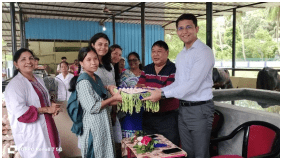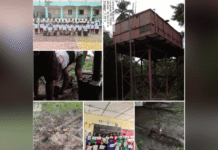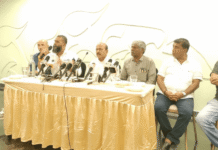Sustainable farming and community development came into focus during the Deputy Commissioner of Nicobars’ visit to the Dairy-cum-Fodder Unit in Car Nicobar on August 25. The unit, managed by the Department of Animal Husbandry and Veterinary Services, has been developing eco-friendly practices to strengthen local nutrition and agriculture. The visit highlighted how such initiatives can combine food security, entrepreneurship, and environmental awareness in a region where resources and livelihoods are closely tied to land and livestock.
During the inspection, the Deputy Commissioner noted the use of a portable biogas plant at the unit, a facility that both reduces waste and provides clean energy. The technology exemplifies how sustainable agriculture can adapt to local needs while minimizing environmental impact. Observations during the visit also emphasized the importance of increasing the number of cows at the unit to meet local milk demand. Expanding milk production was seen as a step towards improving community nutrition, particularly in supporting children and vulnerable groups in Car Nicobar.
Another focus of the visit was the functional incubator at the unit, designed to support startups and small-scale ventures. Recommendations were made to scale up its operations so that it could extend greater assistance to emerging businesses. The approach aligns with broader efforts to foster entrepreneurship and diversify the economic base in the Nicobar Islands, where local opportunities remain limited compared to the mainland. By encouraging innovation at the grassroots, the incubator model aims to create avenues for income generation and self-reliance.
The Deputy Commissioner also participated in symbolic activities intended to reinforce environmental awareness. Saplings of fodder and fruit-bearing plants were planted at the dairy unit in the presence of school children and teachers. The gesture carried a message of sustainability for the younger generation, linking agriculture with conservation and showing how local farming can support ecological balance. The presence of students at the event gave it an educational value, blending practical farming demonstrations with lessons in stewardship of natural resources.
Earlier in the day, the visit also included distribution of table eggs to students of secondary and senior secondary schools in Car Nicobar. Supported by members of the Tribal Council, the exercise was aimed at enhancing child nutrition, highlighting how simple dietary supplements can play an important role in supporting the growth and health of children. This effort tied in with the overall goal of strengthening food security in remote island communities.
The visit underscored the commitment of the Animal Husbandry and Veterinary Services Department to sustainable practices. With limited arable land, dependence on imports, and fragile ecosystems, the Andaman and Nicobar Islands face particular challenges in maintaining food supply and livelihoods. Initiatives like the dairy-cum-fodder unit demonstrate how localised solutions can make a difference by combining traditional animal husbandry with modern innovations such as biogas plants and business incubation models.
For Car Nicobar, where agriculture and livestock remain important to community life, the emphasis on scaling up production, promoting innovation, and fostering awareness signals a forward-looking approach. The inclusion of school children and the involvement of the Tribal Council in these activities also reinforced the role of collective participation in strengthening rural development.
The inspection concluded with a broader message about the importance of integrating sustainable agriculture with social goals. By focusing on milk production, biogas, child nutrition, and entrepreneurship, the unit positions itself as a hub of local progress. As the administration continues to support such initiatives, Car Nicobar’s dairy-cum-fodder unit stands as a small but significant model of how agriculture in island communities can be both resilient and forward-looking.





